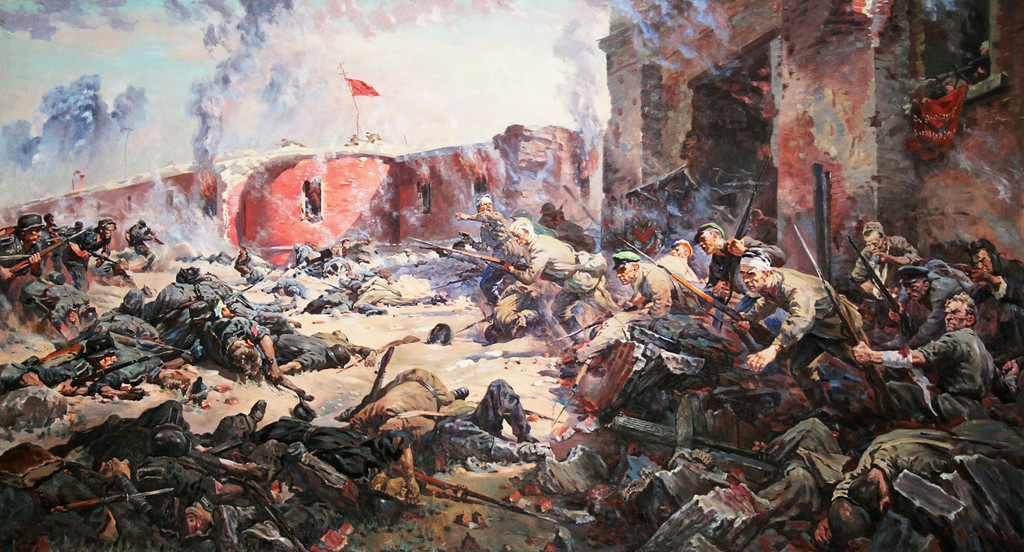Episodes 4–6, 7–8, 9–10, 11–12, 13–14, 15–16, 17–18.
This is a series of (admittedly slightly liberal) documentaries on what Berlin termed Operation Barbarossa. It was the largest invasion in all of history. Most of the invaders were Germans (about three million), but what many neglect to mention is that they were joined by significant numbers of Austrians, Croatians, Czechoslovaks, Finns, Frenchmen, Hungarians, Iberians, Italians, Romanians, Scandinavians, Slovenes, and more.
Since the invasion is not a good example of horseshoe theory, and a neutral observer would naturally see the Soviets as the victims in the conflict, it generally isn’t one of antisocialists’ favorite topics. Nonetheless, when antisocialists do have to talk about it their strategy is to blame the Soviets for as much of the destruction as possible while exculpating the Axis as much as possible.
One such strategy is pointing out that Moscow did not immediately declare war on any of the Axis powers as soon as the western Axis launched the invasion. And of course there is always that ‘Molotov–Ribbentrop Pact’ dead horse that antisocialists never tire of beating, but the background and circumstances behind it are of no interest to them, so they usually go unmentioned. They have other reasons for shifting all of the blame onto the Soviets, but these are easily the most repetitive ones, and I am not using this topic to focus on them.
Instead, I would like to cordially invite you to learn more about this dark time in history, when anticommunist forces massacred at least twenty‐six million Easterners in various ways and an Axis victory looked like a very valid possibility until the Soviet victory at Stalingrad in 1943.
Operation Barbarossa can very much be read—and probably should be read—as part of the continuity of the West’s colonial wars: not only did the Reich’s head of state refer on at least one occasion to the Soviets with a slur for Native Americans, but per Lebensraum German settlers were to occupy substantial portions of the former U.S.S.R., Fascist businesses were to join them, and the natives had to disappear. Quoting Casper Erichsen & David Olusoga’s The Kaiser’s Holocaust:
Hitler was adamant that Germany’s task in Russia was not occupation but colonisation. In the privacy of his inner sanctum and in the company of the party elite, Hitler spoke with clarity and without rhetoric.
He began with a warning. ‘It is essential’, he said, ‘that we should not proclaim our aims before the whole world. Rather Germany should emphasise that we were forced to occupy, administer and secure a certain area … we shall act as though we wanted to exercise a mandate only.’
With this veil in place the real work of colonisation could begin. ‘We can’, Hitler reassured his audience, ‘take all the necessary measures — shooting, resettling etc. — and take them we shall … It must be clear to us’, he insisted, ‘that we shall never withdraw from these areas.’
I could recommend numerous books for this subject, such as Enemy in the East and Joining Hitler’s Crusade, but—aside from the fact that they should be read with caution (they’re of mixed quality)—I understand that not all of us have the time to plow through a book. Some of us likely don’t even have the time to watch a forty‐four minute documentary either, and that’s fine. Even if all that you can do is remember this event, I appreciate it.
Stay safe out there.
